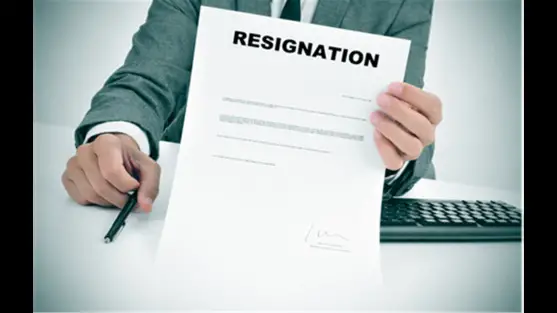
How to hand in your notice... telling your employer you’ve got a new job
15 Mar, 20165 Minutes
Firstly, if you’re reading this it’s likely that you’ve secured a new job – congratulation! It’s never going to be easy handing your notice in, regardless of how excited you might be about moving on to pastures new. However, we thought it would be a good idea to pen down a few basics that hopefully help make it as smooth as possible when the time comes.
Your employment contract
First things first, we would advise you to check your employment contract. This will tell you how much notice you have to give, how you must give the notice and what may happen if you’re leaving to work for a competitor, as well as containing other important details such as restrictive covenants.
Giving your notice
You can usually give your notice either verbally or in writing (unless it’s stated in your contract that it must be given in writing); however as a rule we would suggest always formally writing down your resignation letter. This way it always gives you something to refer back to if you need it.
Keep it factual
Remember, you don’t have to give a reason as to why you’re handing in your notice if you don’t want to. If you do want to give a reason then try and keep things clear, factual and professional, e.g. you’re leaving to pursue a niche area.
Focus on the positives
If you can, give thanks and focus on the positives while you’ve been at the firm.
Working your notice
There are a number of things that can happen here. You may be required to work your full notice, in which case you’re in the office until your leave date. Providing there is provision within your contract, you may be put on garden leave. In its simplest and most usual form this would mean you don’t attend work however its worth noting that you are still employed by the firm and covered by any contractual duties, you can also be brought back to work if needed. With both of these you will continue to be paid as before, subject to your contract of employment saying otherwise. Alternatively, you may be able to negotiate an early leave date however this would be entirely dependant on the situation with your employer and new firm and on an early release you would cease to be paid. Once your notice is up, you a free to leave and start your new adventure.
Restrictive Covenants
Typically, a restrictive covenant is a clause in your employment contract which prohibits you from competing with an ex-employer for a certain period of time after you have left the business or prevents you from dealing with clients/contacts that you may have gained during your time with the firm. There are various different types of restrictive covenants which can also prevent you from poaching staff or even joining similar type firms, or working within a specific area as well as the restrictions mentioned above. Restrictive covenants usually last between 6 months and 1 year. These restrictions should be clearly set out in your contract. It’s also worth noting that any restrictive covenants that are in place will run from your agreed release date, for example if you have 3 month notice period and are put on garden leave, and a 6 month covenant preventing you from contacting former clients, it’s essentially 9 months from the date you handed your notice in before you are legally allowed to contact the client again. If you breach your restrictive covenant there can be serious implications and can include injunctions or if there has been a loss resulting from the breach, damages may be awarded.
Hopefully this has been useful and if you are putting this advice into action, good luck for the future role! If you have any further questions, please contact one of our consultants at Sacco Mann.

